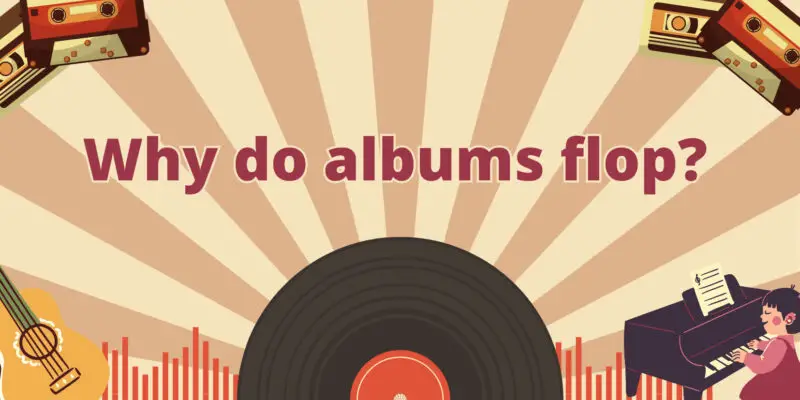In the ever-changing landscape of the music industry, not every album released achieves the commercial or critical success that artists and record labels hope for. Some albums, despite the talent and effort behind them, simply do not connect with audiences and fall short of expectations. In this article, we’ll explore the various factors that can contribute to an album flopping.
- Lack of Promotion and Marketing
One of the most common reasons albums flop is inadequate promotion and marketing. Even a great album can go unnoticed if it doesn’t receive the attention it deserves. Effective promotion involves building anticipation, reaching the target audience, and creating buzz around the album through avenues like social media, music videos, and live performances.
- Changing Consumer Habits
The way people consume music has evolved significantly in the digital age. Streaming platforms and single-song downloads have become dominant, making it challenging for full albums to gain attention. Some listeners prefer individual tracks over entire albums, impacting the commercial success of full-length records.
- Competition and Saturation
The music industry is highly competitive, with a constant influx of new releases. Albums can flop simply due to the sheer volume of music available, making it difficult for an album to stand out in a crowded market. Timing and market saturation play crucial roles in an album’s success.
- Mismatched Expectations
Sometimes albums flop because they don’t meet the expectations set by the artist’s previous work. Fans may have specific expectations based on an artist’s previous releases, and if an album takes a different creative direction, it can alienate some of the fanbase.
- Poor Reception or Critical Response
Negative reviews from critics and a lukewarm reception from fans can significantly impact an album’s sales and success. Critics and fans alike can influence the perception of an album, leading to decreased interest and sales.
- Lack of Radio Play and Airplay
Radio remains a powerful medium for promoting music, and albums that do not receive radio play may struggle to gain traction. Radio airplay can introduce an artist to a broader audience, and without it, an album’s reach may be limited.
- Changing Musical Trends
Musical trends evolve over time, and an album that does not align with current trends or lacks innovation may struggle to find its place in the market. Staying relevant and fresh can be a challenge for artists, particularly those with long careers.
- Distribution and Availability
Accessibility is crucial in the digital age. Albums that are not readily available on popular streaming platforms or through physical distribution channels may fail to reach potential listeners.
- External Factors
External factors such as global events, economic conditions, or changes in an artist’s personal life can impact the success of an album. These factors may be beyond the artist’s control but can have a significant influence on an album’s reception and sales.
Conclusion
Albums can flop for a variety of reasons, ranging from inadequate promotion and marketing to changes in consumer habits and market saturation. While commercial success is often a goal for artists and record labels, it is not the sole measure of an album’s artistic merit. Music remains a deeply personal and subjective experience, and albums that do not achieve commercial success may still hold artistic value and resonate with certain listeners. Ultimately, the music industry’s unpredictability ensures that some albums will rise to the top while others may, unfortunately, fall short of expectations.


